From sandiegouniontribune.com
A half-dozen meaderies, including Lost Cause, Meadiocrity and Golden State, have opened in San Diego since 2010
Billy Beltz is bullish about mead’s future. The co-owner of San Diego’s Lost Cause Meadery predicts that honey wine will be the next big — oops, scratch that — the next not-so-big thing.
“It will never be more than a blip in the craft beverage industry,” he said.
While mead may never rival beer or wine in popularity, it has a growing fan base around the nation and in San Diego County. About a half dozen local meaderies, including Lost Cause Meadery, San Marcos-based Meadiocrity and Oceanside’s Golden Coast, have opened since 2010. This new generation of mead makers specializes in brews with vivid, fresh flavours — they are to the slick, cloying meads of yesteryear what Stone IPA is to Coors Light.
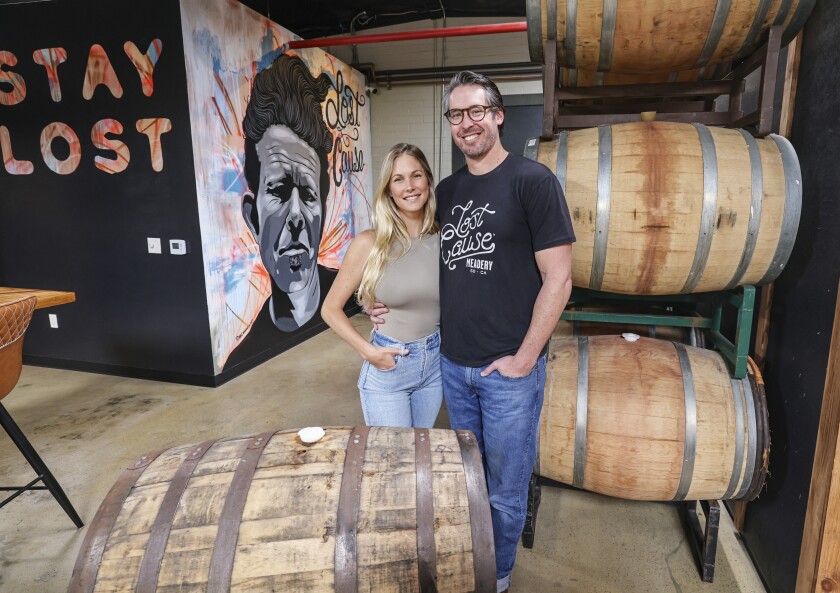
“The overall quality of the mead world is improving my leaps and bounds,” said Peter Bakulich, an amateur mead maker who runs the annual Mazer Cup International, the world’s largest commercial and amateur mead competition.
“We are using modern techniques that we are co-opting from wine making.”
Like beer and wine, mead is made with water, fermentable sugars — honey, as opposed to barley malt in beer and grape juice in wine — and yeast, which consumes those sugars to produce alcohol.
Yet the parallels are far from exact. Unlike wine or beer, mead also needs nutrients such as nitrogen to kick start the fermentation process.
There’s also little comparison in scale. The United States boasts 11,000 wineries and 9,000 breweries but just a little more than 400 meaderies. And even the largest meadery would be dwarfed by a healthy neighbourhood brewery.
“In the craft beer world,” Bakulich said, “the largest commercial breweries would be considered nano- or pico-sized.”
Small can be beautiful, though — and competitive. Based in Colorado and now in its 15th year, the Mazer Cup draws more than 1,100 entries from more than two dozen countries. Lost Cause and Mediocrity won two medals apiece in the 2021 competition. In fact, Lost Cause is a dominant player at the Mazers, nabbing a dozen medals in the last three years.
San Diego mead has a sweet story. Too bad so few have heard it.
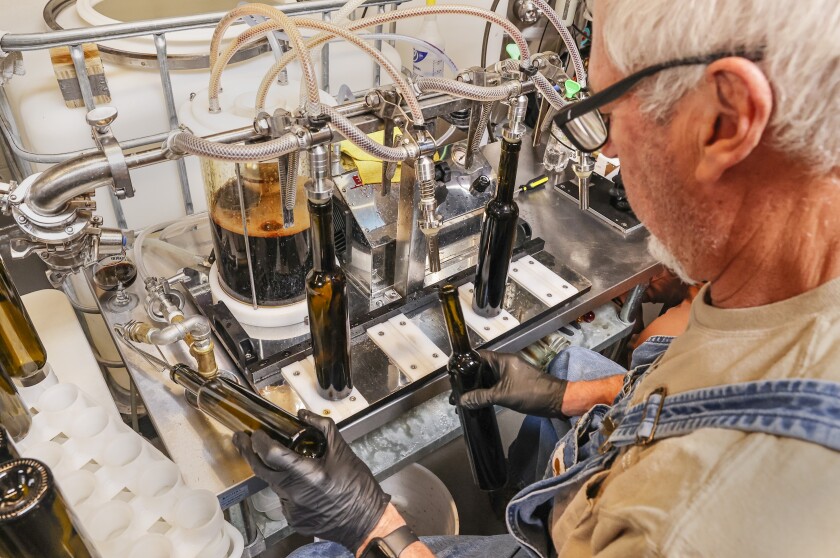
“I still get people who, when I say ‘mead,’ they think it’s a butcher shop,” said Mike McCague, the owner, partner and brewer at Twisted Horn Mead and Cider in Vista. “They hear ‘meat.’”
For eons, mead was as commonly found on the table as meat. The brew is mentioned in the “Epic of Gilgamesh” (the ancient Sumerian poem), the “Odyssey,” the Bible and the plays of Shakespeare. In film and on TV, the drink is quaffed by rowdy Vikings.
This art is imitated by life, at least at Twisted Horn. The redwood-panelled tasting room is decorated with shields and hollowed out horns, the latter reserved for regulars who have been inducted into the meadery’s club, Odin’s Warriors.
If you’re a Dungeons & Dragons fan, this may be your kind of place. If you’re a buttoned down Marks & Spencer sort, it may catch your fancy as well.
“We have a very relaxed atmosphere, all-inclusive,” McCague said. “We could have a guy in a suit sitting next to a guy in chain mail.”
These days, mead maniacs are less apt to pillage villages than lead campaigns on behalf of their essential, yet unpaid, workers: the bees who visit flowers and other plants to collect the nectar that becomes honey.
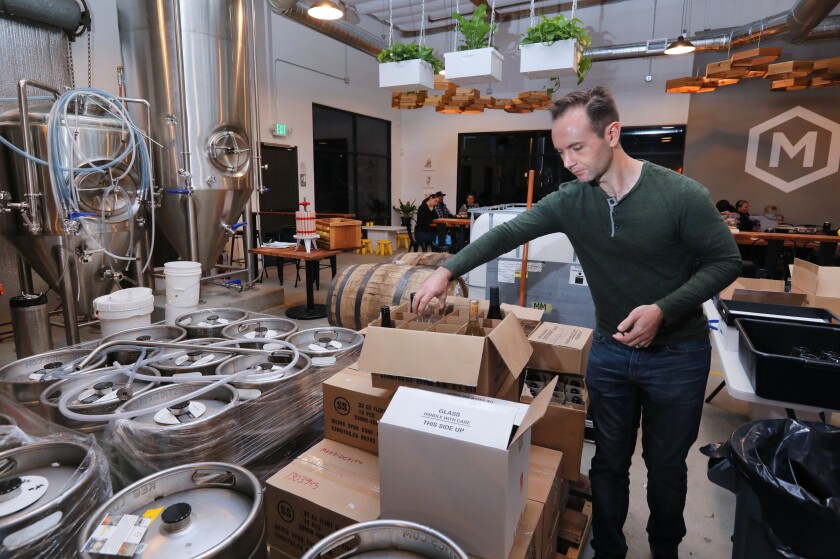
“One of the challenges of our industry,” said Mark Oberle, owner and meadmaker at Meadiocity, “is managing a biological process.”
Meadiocrity’s meads mainly rely on the company’s 100 to 150 hives, home to 6,000 bees. The hives are moved twice a year, spending the cooler months in Valley Centre and the warmer months on Palomar Mountain.
Oberle tries to time these shifts to coincide with wildflower blooms, but nature doesn’t always cooperate.
“Ideally,” he said, “you have multiple rain storms during the winter, with one just before the flowers bloom. This year was very, very dry — just one wet spell — and the flowers opened very early.”
To fill the gap, Oberle has been importing honey from Lebanon, Dubai and other Middle Eastern locales. This is liquid gold; it’s not uncommon for one pound of specialty honey to command $70 or more.
The orange blossom and clover honey found in supermarkets can be used to make mead, but different varieties deliver different flavours. The Meadowfoam blossom honey found in Lost Cause’s Cloud Fluff, for instance, imparts marshmallow and vanilla flavours.
Beltz uses dozens of ingredients in his meads, everything from chili peppers and candy cap mushrooms — these smack of maple syrup — to pecans and tangerines. But to be classified a mead, the brew must be at least 51 percent honey, whether avocado honey, western buckwheat honey or exotics like Bracatina Forest honey.
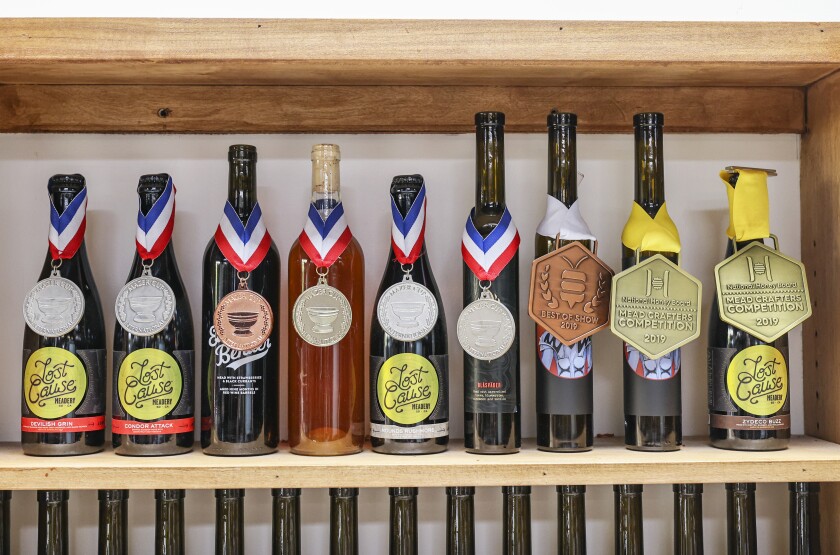
While Beltz acknowledged this is still a niche product, he’s seen it gaining traction in an unexpected quarter: craft beer fans.
“Talk to any beer drinker who is following the craft beer industry,” Beltz said. “They not only know what mead is, there’s a good chance they are a fan.”
Beer fans may be intrigued by Lost Cause’s Level 6 Laser Lotus, which uses El Dorado and Citra hops, commonly found in IPAs, alongside wildflower honey and raspberries.
Wine fans may notice that Strike the Sun, one of Lost Cause’s 2021 Mazer Cup winners, is made with Riesling grapes. (There’s also kiwi, kumquat and Brazilian acacia honey.)
Others may be pulled in by something more primal, harking back to our distant, half-forgotten heritage.
“Mead is this direct route back to our common ancient ancestors,” said Frank Golbeck, co-founder of Golden Coast.
Or perhaps mead’s appeal can be traced to something simpler. At the InterContinental San Diego, director of food and beverage Jeff Josenhans has used mead in several cocktails, including the Honey Bee Spritz.
“I like to use it in cocktails because it adds a little of an unfamiliar touch,” he said, “but it’s also easy to work with.”
A six-pack of San Diego County’s leading meaderies
GOLDEN COAST MEAD
4089 Oceanside Blvd., Suite H, Oceanside
(760) 248-3354
Founded in 2010 by three friends, Golden Coast is the region’s oldest existing meadery.
GOOD OMEN MEAD
141 E. Grand Ave., Escondido
(760) 638-3832
Perhaps the area’s newest meadery, Good Omen brought fresh mead to downtown Escondido in 2021.
LOST CAUSE MEAD
8665 Miralani Drive, Suite 100, San Diego (Miramar)
5328 Banks St., Suite B., San Diego (Bay Park)
(858) 205-1328
Since opening in 2017, Lost Cause has won numerous international and national awards.
MEADIOCRITY
1365 Grand Ave., Suite 100, San Marcos
(760) 651-6323
Many of Meadiocrity’s award-winning meads come from local hives, home to 6 million-plus bees.
RAGING CIDER AND MEAD
177 Newport Drive, Suite B, San Marcos
(442) 515-3120
Now in their seventh year, the Ragers are led by a husband and wife team, Dave and Kerry Carr.
TWISTED HORN MEAD AND CIDER
1042 La Mirada Court, Vista
(760) 295-5888
Is this Valhalla? No, it’s Twisted Horn’s Viking-influenced tasting room.
Peter Rowe is a freelance writer.
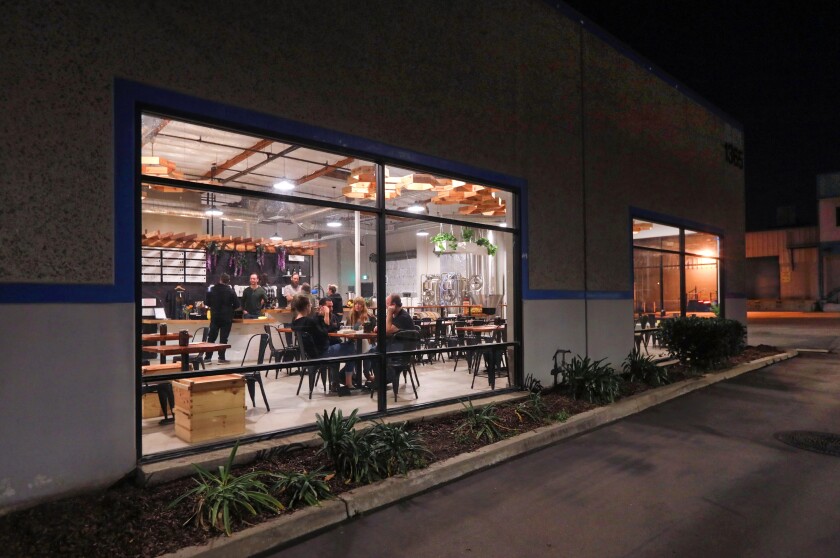
.jpg)

